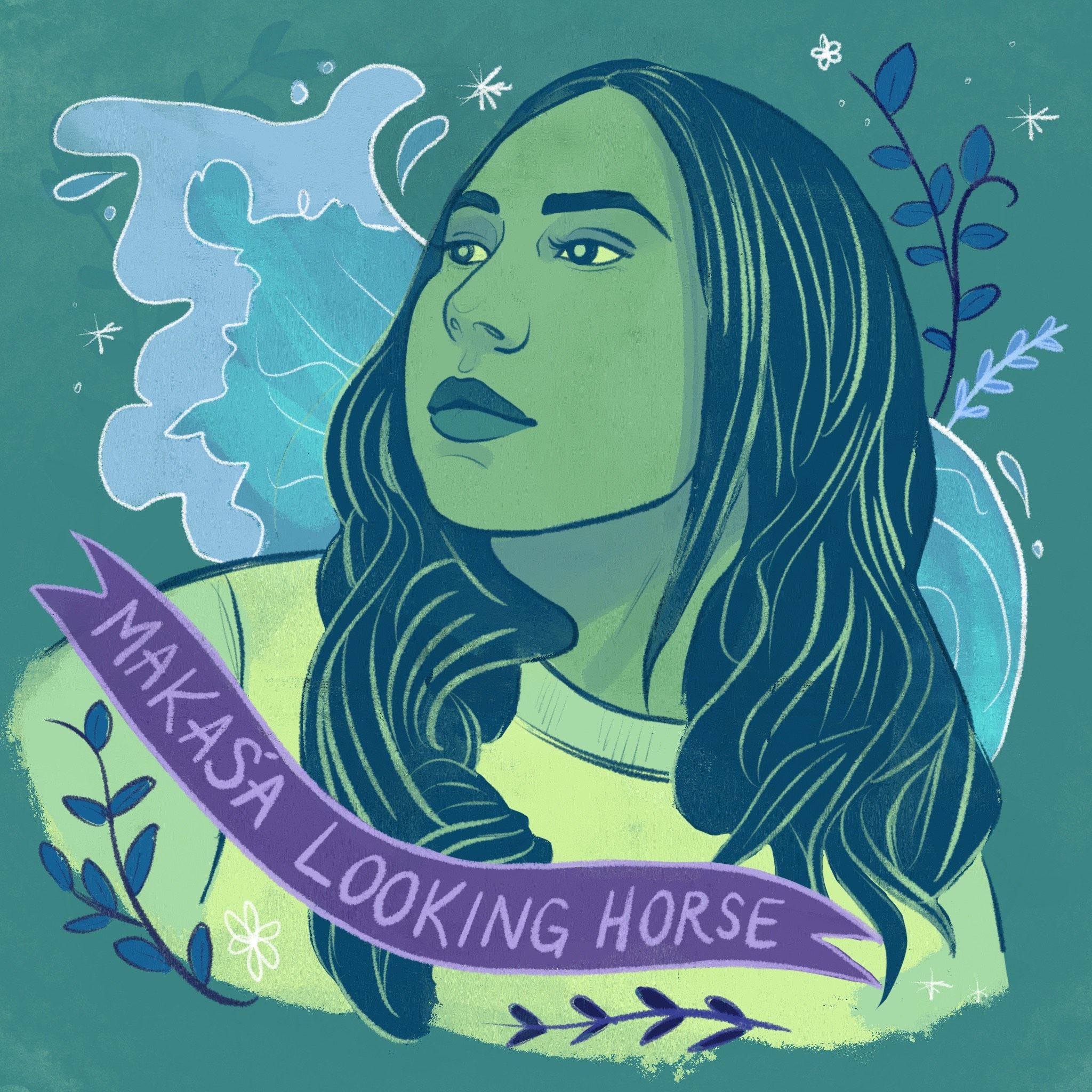
- Programs & Services
- Learning & Development
- Health & Wellness
- Faith & Traditions
- Economic & Financial Planning
- Community Engagement
- Support Services
- News
- Upcoming Events
- Watch Now
- Opportunities
- the.ismaili
- Feedback
- Login

Makaśa Looking Horse, a 23-year-old McMaster University student from the Lakota and Mohawk Wolf Clans, was compelled to action when she learned Nestlé was removing 4.7 million liters of water daily from her community’s aquifers without their knowledge. In 2018, she initiated a social media awareness campaign and organized a protest with over 500 participants that culminated in her handing a cease and desist letter to the CEO of Nestlé at their bottling plant. In spite of the concerns, Nestlé continues to access the aquifers.
“Knowing that my community doesn’t have clean drinking water, and then a large corporation like Nestlé is making billions off of our water, is maddening,” Looking Horse, who grew up on the Six Nations Reserve of the Grand River in Ontario, told Chatelaine in April.
The lack of potable water on First Nations reserves is a national crisis: as of March 2020, there were 61 long-term water advisories on First Nations reserves across Canada. Some of these caution to boil water before drinking, while others outright prohibit consumption or use of the water because it is too unsafe. As youth coordinator for Co-Creation of Indigenous Water Quality Tools, a McMaster University project focused on water security on First Nation reserves, Looking Horse is helping develop solutions to the problem.
Her activism has gained international attention. In June 2019, Looking Horse opened the United Nations Youth Climate Summit. “Humans must build a stronger spiritual reconnection to our mother, the Earth,” she said. “An ethical relationship with creation, a natural bond. If that existed, among all nations, we would not be facing the catastrophic crises we are in today.”
The Ismaili Canada’s Prairies Bureau Chief, Malika Ladha, spoke with Looking Horse about her advocacy and the impact of lack of access to water in First Nations communities. This interview has been edited for length and clarity.
What inspired you to become an advocate for water protection?
Makaśa Looking Horse (M.L.H): Knowing the current state of our waters. For example, Lake Erie has toxic algae; over 40 sewage tanks drain into the Grand River; and we have fine heavy metals in our water systems that people end up drinking. We need water to survive. Water affects everything around us. That’s what pushes me. I want a healthy future and I want my kids to have a good future. My water advocacy work isn’t so much about activism—it's more so a way of life.
How does limited water access impact life on the reserve?
M.L.H.: Only nine per cent of our community is hooked up to the water treatment plant and we have nearly 27,000 residents. People get water to their houses by paying for it or paying the cities outside of the reserve to provide access. Access to water is not guaranteed on the reserve and, if you can get it, you often have to pay for it. If you don't have enough money, then you go without.
There is also a lack of infrastructure. For example, we have to pay for every single component of it while building a house—we have to pay for the hydro line, the septic bed, the plumbing and pipes. And it’s thousands and thousands of dollars for water access before you’ve even built a wall. The infrastructure to have water is just not there.
I know of a young mom of six who couldn't afford that kind of infrastructure, so she doesn't have running water. She has to cook, clean and bathe her children on a daily basis, and it makes it a thousand times harder. Or, when you’re postpartum, they instruct you to clean yourself or bathe and soak in water. And if you don't have any water, it’s a huge issue. There are all these untold stories about lack of access to running water. Other Canadians don't quite grasp that concept.
How do your First Nations roots shape your advocacy work in water protection?
M.L.H.: My rites of passage ceremony was a four-day fast in the woods by myself—it gives you perspective to go without any food or water for a long time. It makes you realize how close we are [to the land] and how we're not better than the land and that we can't live without water. My culture is about giving thanks for everything that gives us life. From a very young age, we pray for every single living thing on Earth. We dance for the raspberries when they come. We dance for the trees when they come. We sing to the seeds when it's time for planting. And that's all it really is: it’s giving thanks and being appreciative of what life gives us.
Lastly, how do you stay optimistic in the face of the environmental challenges that we're facing?
M.L.H.: I can see that youth are coming together for the betterment of the environment and that our [Indigenous] Nations are working together for people. We all have the same goal: we all want a better future, we all want water, and we all want our people to be healthy and happy.
This article originally appeared in the Summer 2020 issue of The Ismaili Canada.